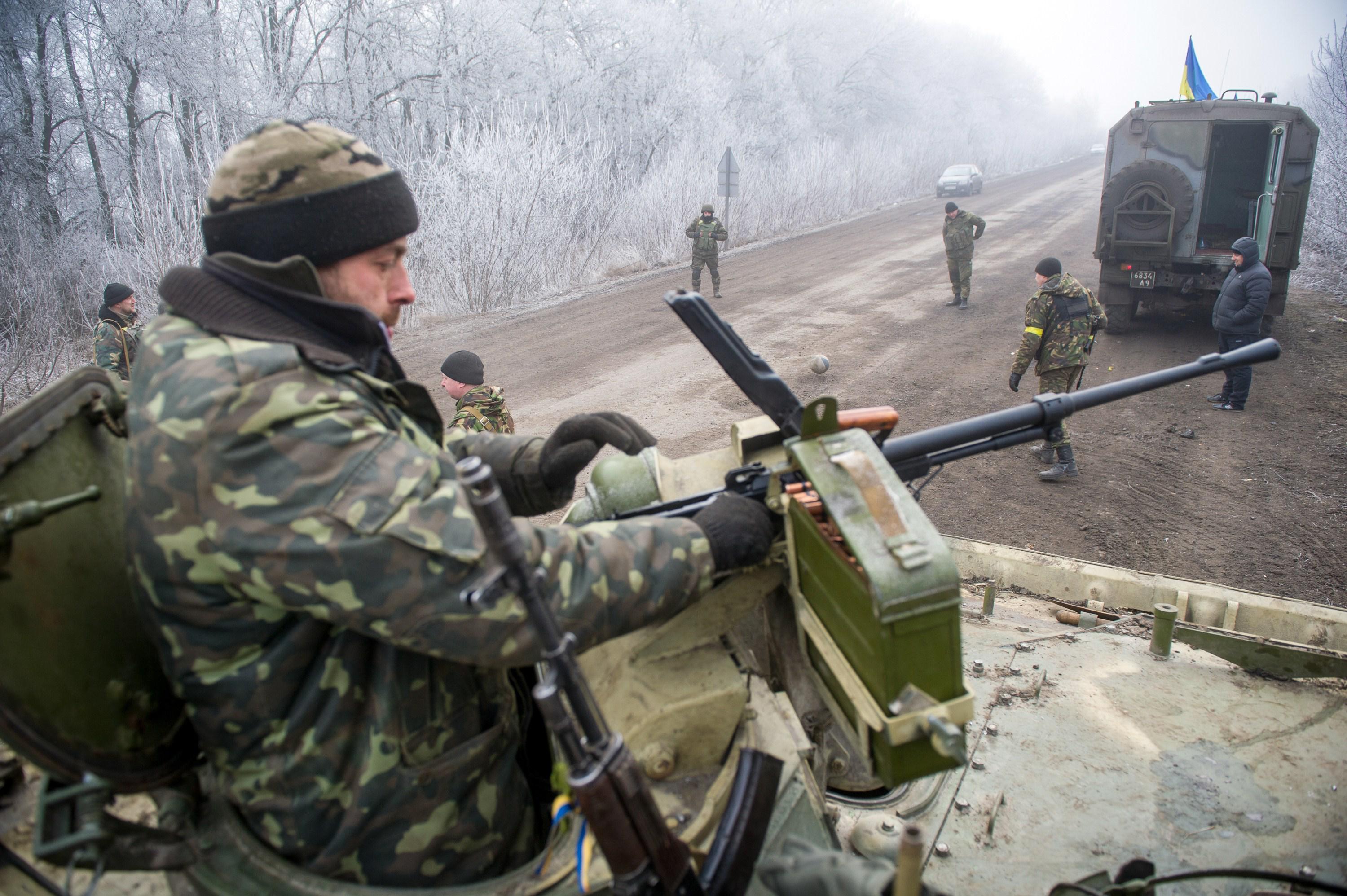The Ukraine ceasefire agreement signed last week in Minsk appears to be falling apart even more quickly than expected. Russian-backed separatists say they’ve taken over the town of Debaltseve, which had been the site of heavy fighting in the days leading up to the agreement’s signing. Both sides claim that Debaltseve is on their side of the ceasefire line and the agreement didn’t resolve the issue. Ukrainian military troops are trapped in the city, a key transportation hub, with dwindling supplies.
Under the terms of the Minsk Agreement, the removal of heavy weaponry from the area was supposed to begin Tuesday, two days after the ceasefire went into effect, and be completed within 14 days. But the pullout isn’t happening, with both sides saying they won’t withdraw their weapons until the other one does.
Guns reportedly did fall silent on Sunday morning elsewhere in Eastern Ukraine.
But the fact that the Minsk Agreement leaves the status of the main flashpoints of the battle unresolved doesn’t bode well for its success. There’s another ominous sign in a quote from rebel commander Eduard Basurin, explaining the violence in Debaltseve to Reuters. “Of course we can open fire (on Debaltseve). It is our territory,” he says.”The territory is internal: ours. And internal is internal. But along the line of confrontation there is no shooting.”
This is more than just a dispute over territory. Basurin, deputy defense minister of the self-declared Donetsk People’s Republic, is still talking about rebel-held territory as if it’s a sovereign nation, where the republic’s forces are responsible for security. This isn’t how it’s described in the Minsk agreement, which calls for decentralization of political power to the regions but maintains that local elections be held in accordance with Ukrainian law and that Kiev should eventually regain control of its border with Russia.
In other words, the deal is that the regions will get more autonomy but will remain part of Ukraine. Basurin and his “government” clearly don’t view it that way. Given that, it’s hard to see Minsk as resulting in anything more than a temporary lull in hostilities. And based on today’s events, it may not even be that
